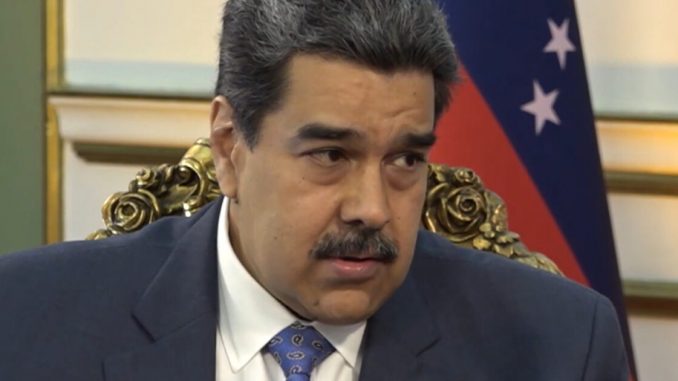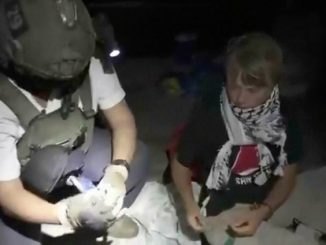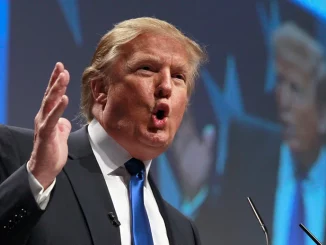
| Published September 6, 2025
President Donald Trump is reportedly considering military strikes against drug cartels operating within Venezuela, aiming to dismantle the regime of President Nicolás Maduro. This move is part of a broader strategy to combat narcotrafficking, which Trump views as a direct threat to U.S. security, particularly in light of the ongoing drug influx across the southern border.
According to CNN sources, Trump has authorized options for targeted strikes on Venezuelan soil, building upon a recent operation that sank a drug-smuggling vessel departing from the country. The U.S. has positioned significant military assets near Venezuela, including ships armed with Tomahawk missiles, an attack submarine, aircraft, and over 4,000 sailors and Marines. Additionally, 10 advanced F-35 fighter jets have been sent to Puerto Rico for amphibious landing training exercises. The administration has also labeled Maduro a “narco-terrorist” and doubled the bounty for his arrest to $50 million.
Secretary of State Marco Rubio emphasized that the U.S. will target drug cartels wherever they operate against U.S. interests. Trump has reportedly told national security officials that he will authorize strikes against terrorist targets if opportunities arise. While no final decision has been made regarding strikes inside Venezuela, the administration has indicated that such actions remain a possibility if deemed necessary.
All 11 drug smugglers were killed in Tuesday’s airstrike.
Trump has warned that the US military will sink other drug smuggling boats and shoot down Venezuelan aircraft that interfere in his administration’s counter-narcoterrorism mission.
 Implications
Implications
1. Strengthened U.S. National Security
Targeting drug cartels operating inside Venezuela directly addresses the source of much of the illegal narcotics flowing into the U.S. By dismantling these networks abroad, the administration aims to reduce the domestic impact of drug trafficking, lower overdose deaths, and curtail cartel-related violence in American communities.
2. Deterrence Against Criminal Networks
A decisive strike sends a strong warning to narco-terrorists and transnational criminal organizations: America will not tolerate threats to its sovereignty or its citizens. Demonstrating the willingness to act decisively may deter future cartel operations or expansion.
3. Pressure on the Maduro Regime
Holding Venezuela accountable for harboring and enabling drug cartels emphasizes the consequences of state-sponsored criminal activity. By labeling Maduro a “narco-terrorist” and taking military action, the U.S. signals that it will not ignore regimes that threaten its security interests.
4. Political Leverage Domestically
Domestically, a strong anti-cartel stance appeals to voters prioritizing law, order, and border security. It reinforces the narrative of a government taking decisive action to protect Americans, which can strengthen political capital and public support for the administration.
5. Disruption of Drug Flow
Strikes could disrupt key trafficking routes and operations, reducing the availability of illegal drugs entering the U.S. While not a permanent solution, this could provide a window for U.S. law enforcement and border authorities to gain the upper hand against cartel networks.
6. Demonstration of Military Resolve
Deploying advanced military assets, such as F-35s and Tomahawk missiles, signals to global actors that the U.S. is willing to act decisively to defend its interests. This may deter other hostile states or non-state actors from engaging in similar criminal or destabilizing activities.
7. Support for Law Enforcement Abroad
Taking the fight directly to cartel operations complements domestic law enforcement efforts. It reinforces international cooperation in combating organized crime and establishes the U.S. as a proactive force against global narco-terrorism.
8. Geopolitical Messaging
Beyond immediate tactical effects, strikes communicate to allies and adversaries that the U.S. prioritizes security, sovereignty, and law enforcement over diplomatic hesitancy. It may influence other nations to take stronger stances against criminal networks operating within their borders.
 Overall Takeaway:
Overall Takeaway:
President Trump’s potential strikes against Venezuelan drug cartels underscore a commitment to protecting American citizens and securing the southern border. By taking decisive action against criminal networks and the Maduro regime, the U.S. would demonstrate that national security and law enforcement priorities come first. This bold approach sends a clear message to narco-terrorists: America will not hesitate to defend its interests and hold foreign regimes accountable.







Be the first to comment